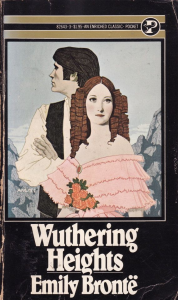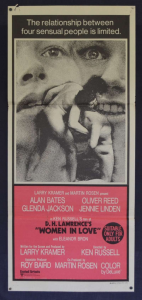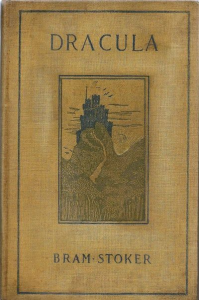There Are the Stories We Tell Ourselves, and Then There is Emerald Fennell’s Wuthering Heights
written by Sophie Swengel
One of the looming clouds over any writer’s head, however successful, is the allure of having your work adapted. It is an easy allure to succumb to, and as a writer myself, I can’t help but utterly, completely get it.

Studying both English and history has made me particularly interested in the cultural significance of which stories are adapted. Ancient mythologies applied to modern times, such as Jean Cocteau’s Orpheus; postmodern fables responding to the pulse of society, like George Roy Hill’s Slaughterhouse-Five — what works are chosen by directors to make the jump from page to celluloid, can speak volumes about the worlds these films responded to.
I am not the only one curious about these connections. From academia to op-eds, commentaries about about how novels and stories are adapted and what those adaptations say about culture. Most recently, the trailer for Emerald Fennell’s interpretation of Wuthering Heights sent waves of controversy across various circles for its deviations from Emily Brontë’s source material. Watching this trailer out of morbid curiosity with my knowledge of literary scandals and twentieth-century film, I couldn’t help but think of Ken Russell’s adaptations of D. H. Lawrence’s books. Discovering Russell’s work played a large part in my own development as a storyteller, and the director’s propensity for bombast in these films responds to, not overpowers, the culturally relevant controversies the author’s work ignited — both in its time and in the decades to come. The 1969 film of Women in Love in particular uses extraneous, ‘shocking’ scenes — fireside wrestling in the buff, anyone? — to expand on the novel’s themes, and despite their social ‘shock value’, they do not take away from the beauty at the core of Lawrence’s story. Nor do they overshadow Russell’s eye for the deepest emotions humanity is capable of.

I did not perceive this symbiosis between source material and interpreter in the trailer for Fennell’s film. I thought more of Robert Eggers’ adaptation of Nosferatu from last year — that film was a cultural phenomenon, especially among women, who dressed in their gothic finest to attend screenings, paying tribute to the film’s wonderful costumes. A large part of this appeal stemmed from its themes of suppressed, even monstrous lust. But while the film held the potential for a fresh look at Stoker’s Dracula, it resorted to overwrought cliches of social sexual oppression instead of any fresh exploration of the topic. Seeing such a promising director — Fennell — seemingly copy that film’s formula disappointed me.
Too, hearing critical commentary that the film is attempting to ‘update’ the novel for my generation was almost depressing; I am sure that not everyone in my cohort wants little more than bodice-ripping nonsense disguised as supposed social commentary on women’s lives. The negative backlash it has received by readers over matters of casting and historically accurate costume design proves this. Upon release in February, the film may prove itself to be insightful in its unorthodoxy; its gusto, however obvious and intentional, may not overpower its core messages. As it stands, however, Wuthering Heights seems to be going against the truth that Lawrence’s books and Russell’s films promote — that shock is something to be wielded carefully and skillfully.
It also, to me at least, comes off as demeaning. According to this film and Eggers’, I as a woman must be freed from the tantalizing corset society has strung to me, unleash my suppressed wild urges. These portrayals of women as constantly oppressed and men as constant oppressors has stained media of all sorts in this century, especially literature, which has become an almost exclusively female-gendered realm. The prevailing stereotype of the author is the tortured-female-poet archetype — from Sylvia Plath to Taylor Swift — and that of the reader is a pent-up woman who escapes the real world through smut — from Fifty Shades of Grey to Colleen Hoover. Both archetypes are extremely limiting to the potential of literature. And the declining popularity of literature and other liberal arts pursuits among men — as well as negative stereotypes against well-read men — serve as proof that these views not only harm women but everyone.

Thankfully, not all has been disappointing on the silver screen as of late. Yorgos Lanthimos’s Poor Things unapologetically revels in the off-kilter as a riotous pean to the miracle of life and all its spoils. Jonathan Glazer’s The Zone of Interest spun a fictionalized depiction of Auschwitz into a haunting tale of the mundanity of the worst sides of human nature. Both films were very successful and highly received upon release; they prove that audiences today want and value works that contain multitudes, break form, and use ‘shock’ with intent.
That the culture surrounding these audiences has chosen to value Nosferatu’s laboratory-bred formula is a great disappointment to me as not only a writer but someone privy to the symbiotic relationship between media and society. Stories reverberate, and those which we tell ourselves hold emotional impact beyond words — whether those words are written or recorded doesn’t matter. And if we can only view life through few, immoveable stories force-fed to us, it becomes difficult to value that which strays. Connection across borders becomes immoveable within such binaries. And yet, they are — they always are, if we have the strength to move them. As readers and theatergoers, we deserve stories that speak to us and the many layers that comprise us, not hypothetical versions of a gluttonous, sex-starved “us”. As authors and directors, we must let the stories we dictate — for others and ourselves — speak to the human condition with depth, elegance, respect. And as complex human beings, we must not feel constrained to what others find palatable as we craft our own stories, let our own lives unfold with the messiness they were supposed to. There is no corset holding you back.
Images sourced from Pinterest.